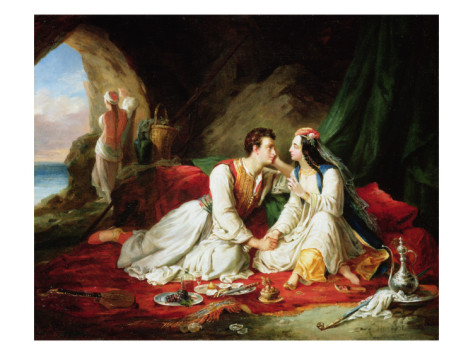
To Richard Colton Lyon
Via Santo Stefano Rotondo, 6
Rome, November 8, 1949
The most interesting thing in your letter is what you say about love, which seems singularly mature for your age. But I think, in regard to marriage, that what you say does not preclude true love or true happiness in that relation. Love, in English, is a very wide term. What poets and philosophers, at least of the classic school, talk about is the passion of love, the madness, divine madness, of Plato. But attraction, confidence, mutual delight, and complete devotion to a chosen mate is not madness at all: it is a phase, a settlement, of the sane affections of one human being to another, where all sane possible bonds, physical, domestic, social, intellectual, and religious bind the two together for life—common material interests and children being strong material buttresses to such a complete union in after years. More than once, at friends’ houses in England or in hotels, I have found myself divided only by a frail closed door from the bed in which an elderly pair were exchanging confidential judgments and ideas; and I have been impressed by the perfection of friendship and sympathy in such a union. The only advantage—for me important—that the ideal friendship has over such a happy wedlock is liberty. Friends need not agree in everything or go always together, or have no comparable other friendship of the same intimacy. On the contrary, in friendship union is more about ideal things: and in that sense it is more ideal and less subject to trouble than marriage is. But I am not a lover of life; I prefer it at a distance, or in the distances pictured in it. When it is actually tumbling over itself I feel that it is spoiling its own treasures.
I too, by chance, have been just rereading the whole of Byron’s Don Juan. Some parts bored me, the invectives especially; but as you say, he is witty and his rhymes sometimes surprisingly clever. But he did not respect himself or his art as much as they deserved.
From The Letters of George Santayana: Book Eight, 1948-1952. Cambridge, MA: The MIT Press, 2008.
Location of manuscript: The Houghton Library, Harvard University, Cambridge MA
